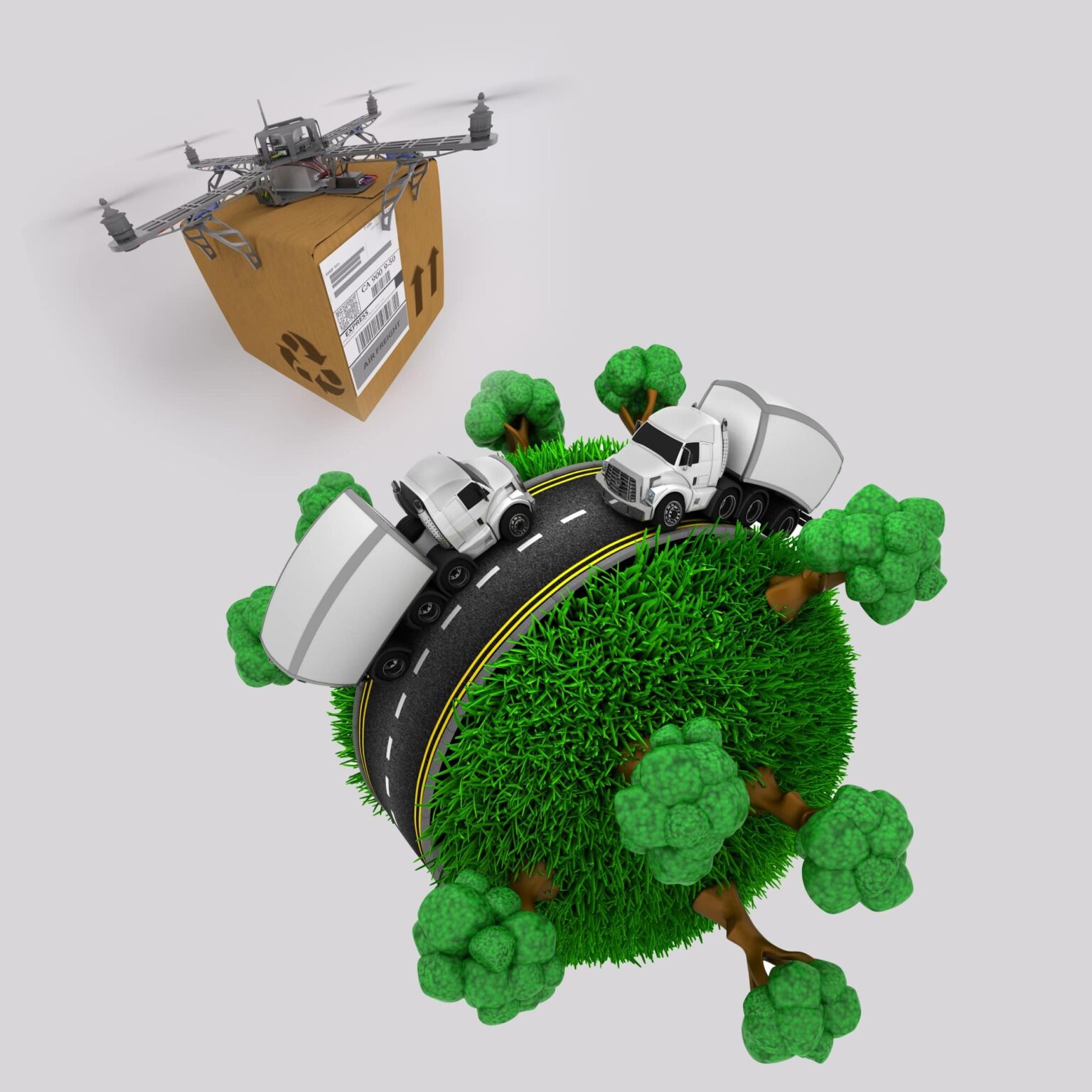Green logistics, also known as sustainable logistics or eco-friendly logistics, focuses on reducing the environmental impact of logistics operations through the adoption of sustainable practices. It aims to minimize energy consumption, emissions, waste generation, and overall carbon footprint. Here are some key practices and strategies involved in green logistics:
- Efficient Route Planning: Green logistics emphasizes optimized route planning to reduce transportation distances and fuel consumption. Advanced planning tools and algorithms help identify the most efficient routes, considering factors such as traffic conditions, delivery schedules, and vehicle load capacities. By minimizing travel distances and improving route efficiency, companies can reduce fuel usage and emissions.
- Modal Shift and Intermodal Transportation: Green logistics encourages the use of alternative transportation modes, such as rail or waterways, whenever feasible. Shifting from road transport to more energy-efficient modes helps reduce greenhouse gas emissions. Additionally, intermodal transportation combines different modes of transportation (e.g., rail and truck) to optimize logistics operations and minimize environmental impact.
- Vehicle Fleet Optimization: Companies can adopt sustainable practices in their vehicle fleet management. This includes investing in fuel-efficient vehicles, hybrid or electric vehicles, and utilizing technologies like telematics to monitor and optimize vehicle performance. Regular maintenance, driver training on fuel-efficient driving techniques, and load optimization also contribute to reducing fuel consumption and emissions.
- Green Warehousing and Distribution Centers: Sustainable practices can be implemented in warehousing and distribution operations. This includes optimizing warehouse layout to minimize energy consumption, using energy-efficient lighting and HVAC systems, implementing recycling and waste management programs, and adopting sustainable packaging practices. Renewable energy sources, such as solar panels, can also be used to power warehouse facilities.
- Collaboration and Consolidation: Green logistics promotes collaboration among companies to optimize transportation and reduce empty miles. Collaborative transportation, such as sharing truck space or consolidating shipments, helps maximize vehicle utilization, reduce congestion, and minimize environmental impact. Companies can also work with suppliers and customers to coordinate delivery schedules and reduce the number of individual trips.
- Reverse Logistics and Recycling: Green logistics emphasizes the management of product returns and recycling processes. Implementing efficient reverse logistics systems ensures the proper handling and disposition of returned products, reducing waste and promoting recycling or refurbishment. This helps minimize the environmental impact associated with disposal and contributes to a circular economy approach.
- Green Supply Chain Partnerships: Green logistics involves selecting suppliers and partners that align with sustainable practices. Collaborating with environmentally conscious suppliers helps ensure the use of eco-friendly materials, packaging, and transportation methods. Building strong partnerships based on sustainability can drive innovation, improve overall supply chain sustainability, and promote shared environmental responsibility.
- Performance Measurement and Reporting: To drive continuous improvement, green logistics relies on the measurement and reporting of environmental performance indicators. Companies can track and analyze metrics such as carbon emissions, energy consumption, waste generation, and water usage. Transparent reporting of environmental performance helps identify areas for improvement, set sustainability targets, and demonstrate commitment to stakeholders.
By implementing green logistics practices, companies can reduce their environmental impact, achieve cost savings through improved operational efficiency, enhance brand reputation, and meet the growing demand for sustainable supply chain solutions. Green logistics not only benefits businesses but also contributes to the preservation of natural resources and the overall well-being of the planet.



